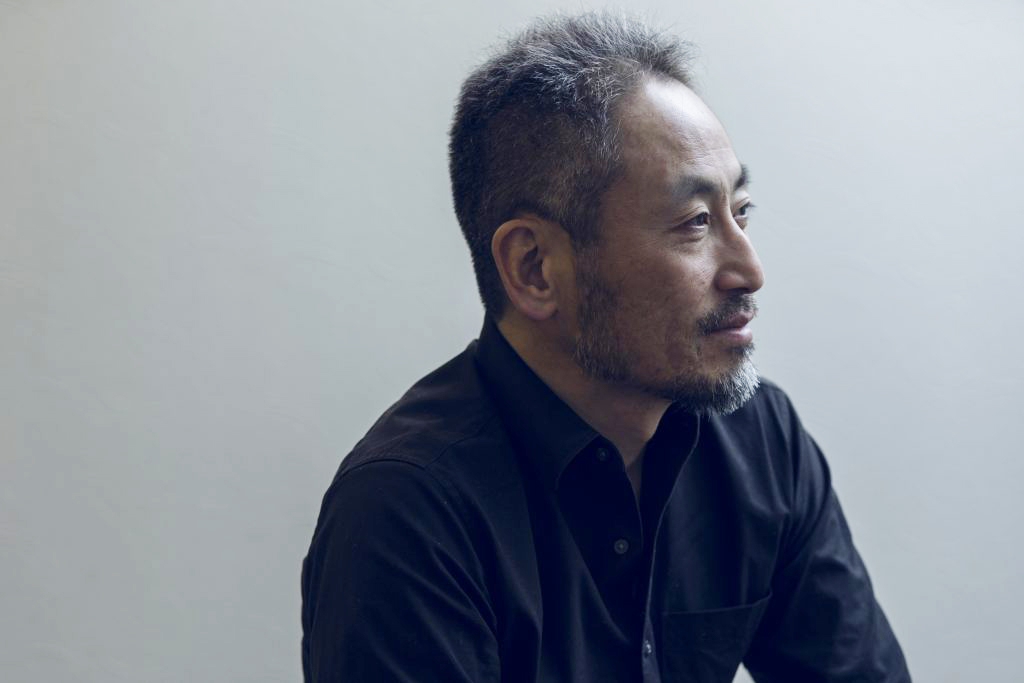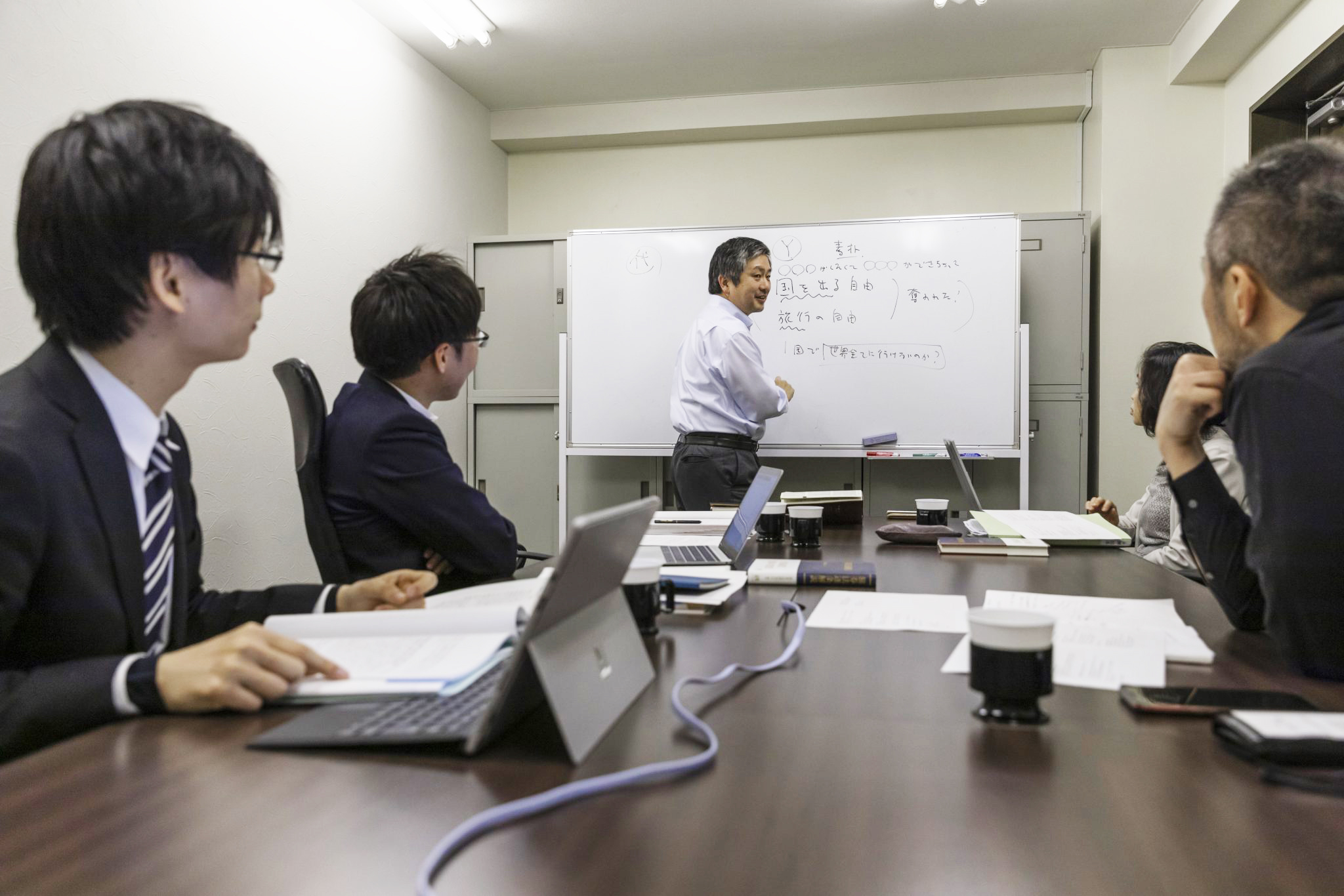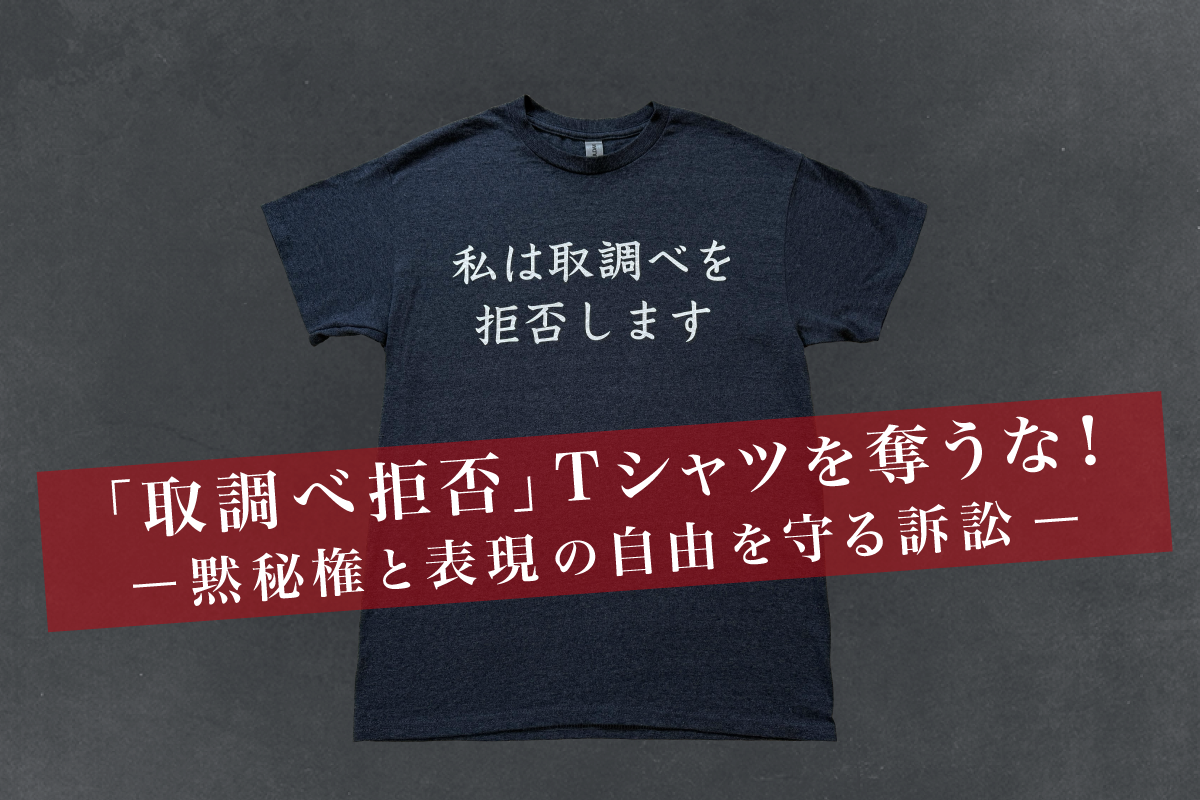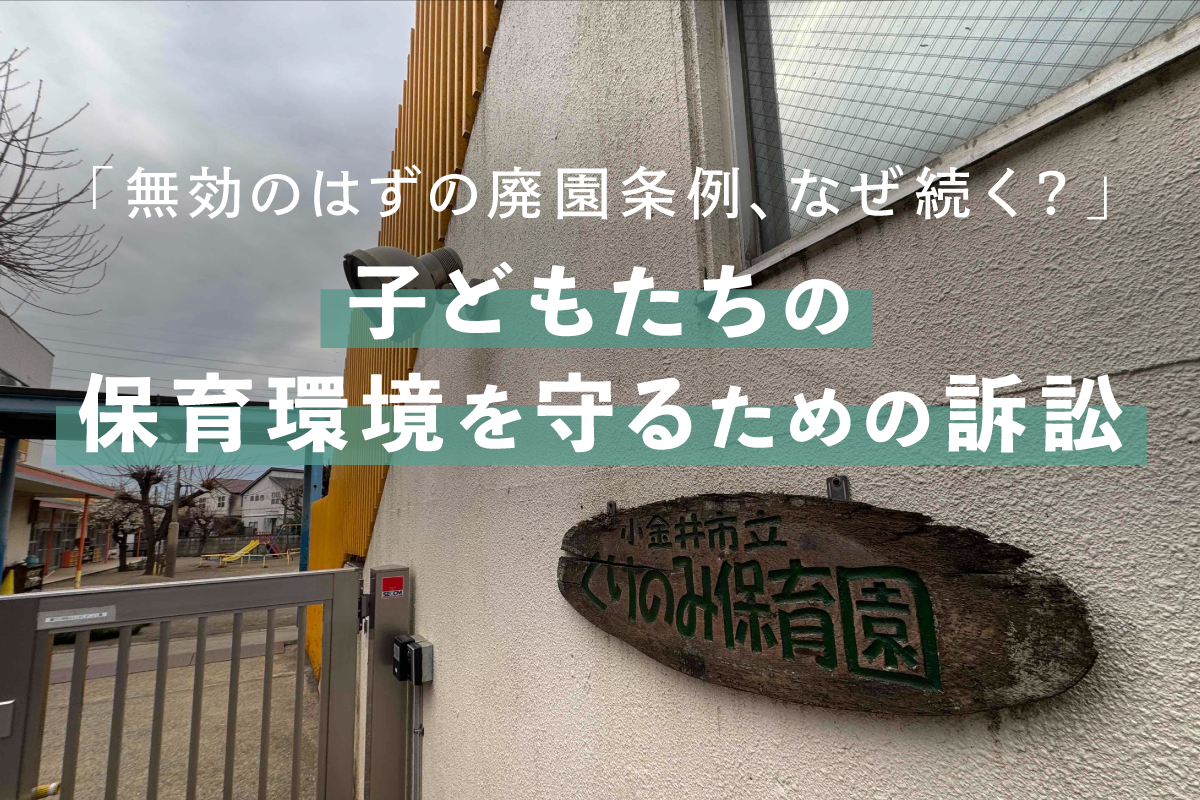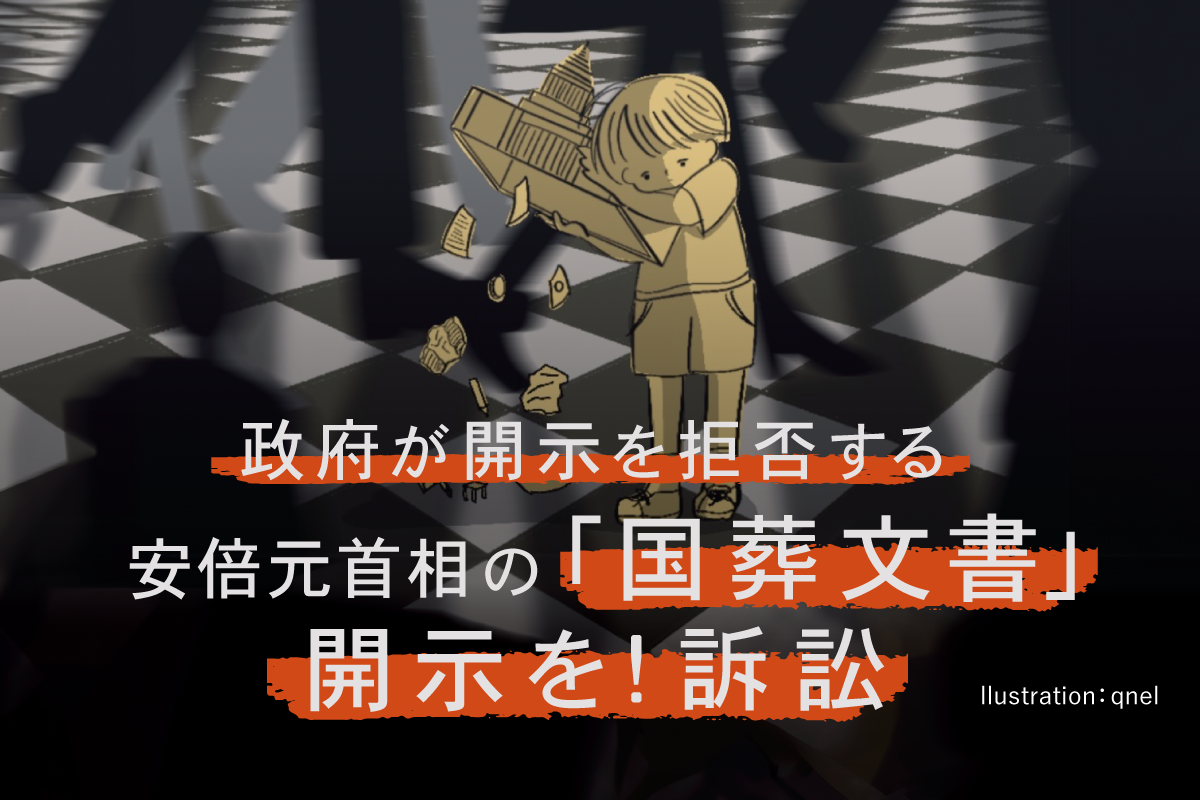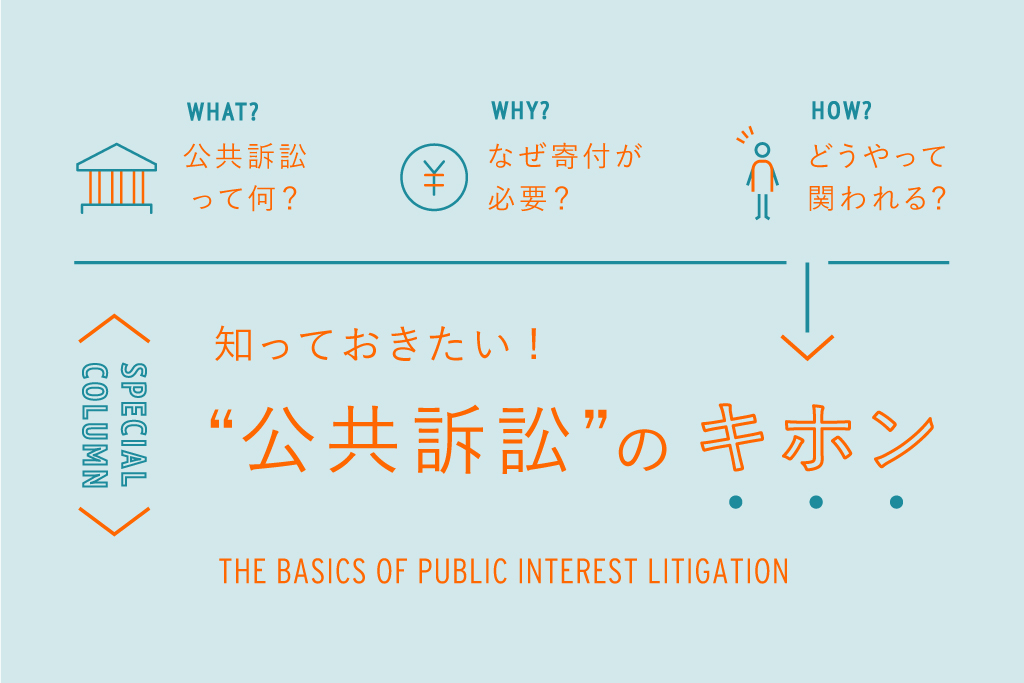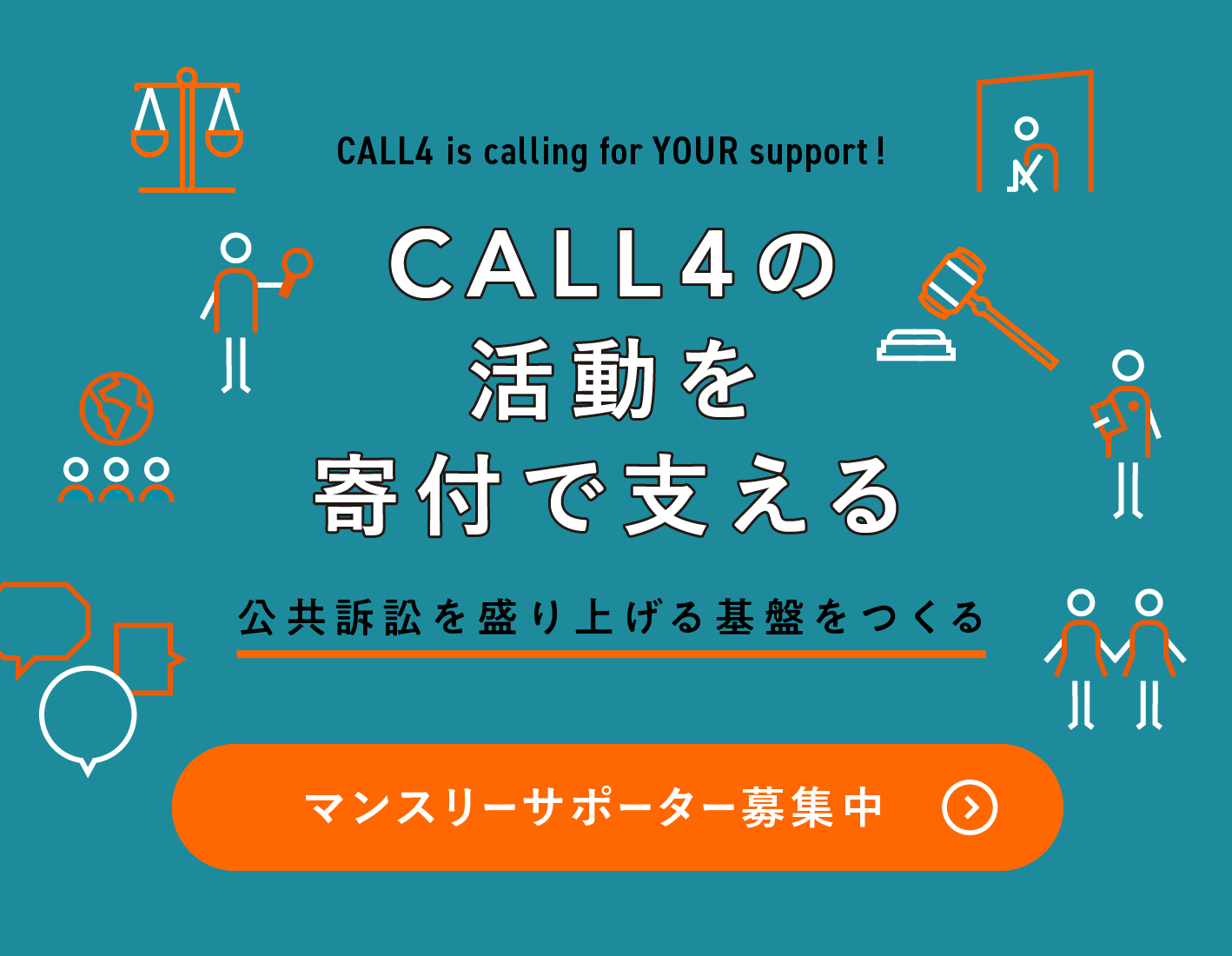ジャーナリストに渡航の自由を!訴訟 A lawsuit for unconstitutional denial of passport issuance
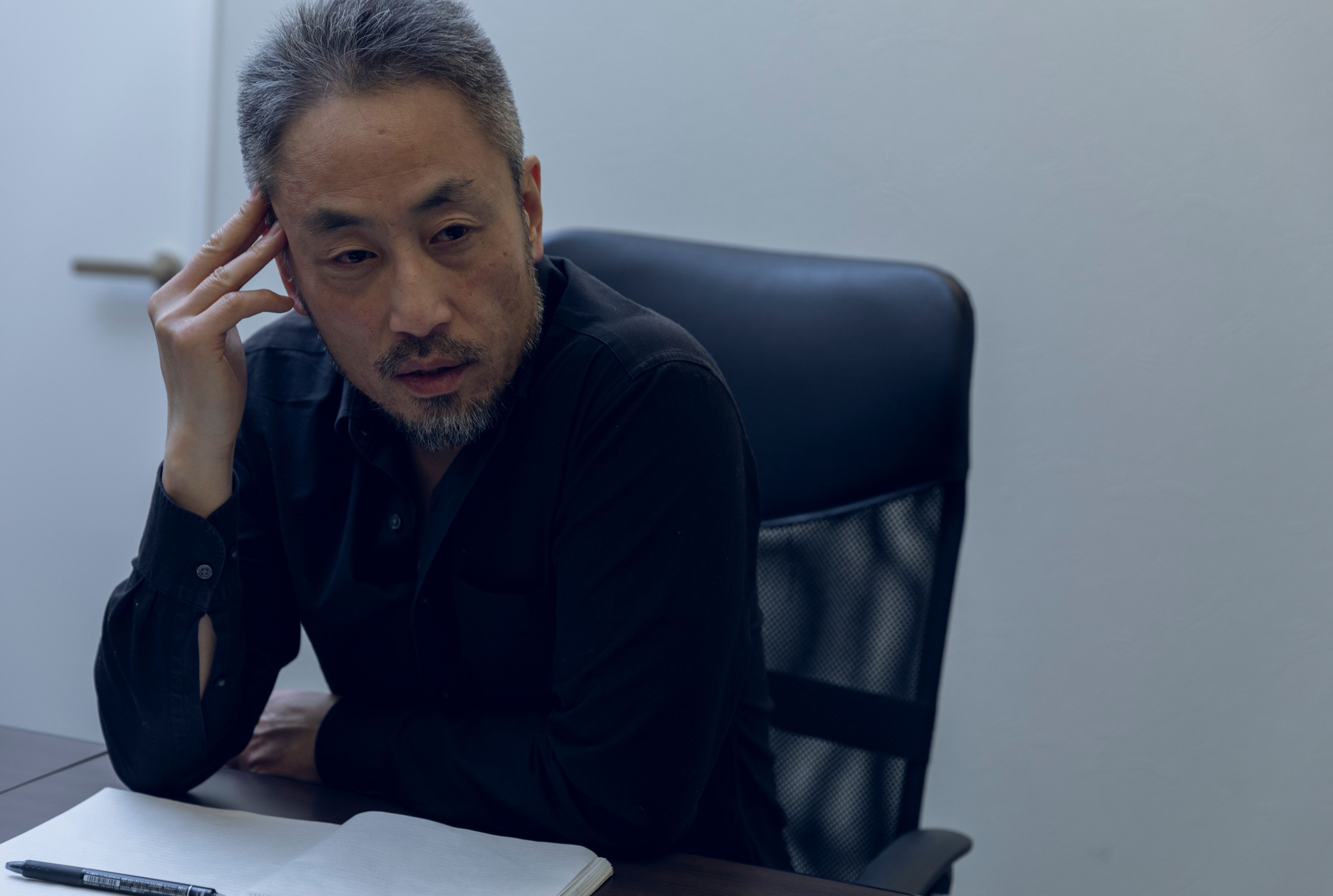
国からパスポートの発給を拒否され、海外へ渡航できなくなった安田純平さんが、発給拒否処分が違憲・違法であるとして、2020年1月9日に国を相手にパスポートの発給等を求めています。 Junpei Yasuda was refused by the government to issue a passport and was unable to travel abroad. In this administrative lawsuit, he is seeking the issuance of a passport etc.
はじめに
原告の安田純平さんは、シリアで武装勢力から3年余りにわたって拘束された後、2018年10月23日、シリアからトルコを経由して日本に帰国しました。
その後、家族と海外旅行に行くことを計画し、パスポート発給の申請をしましたが、国はこれを拒否しました。以後、安田さんは、事実上日本から出ることができない状態になってしまいました。
この裁判は、国が安田さんに対して、パスポート(一般旅券)の発券を拒否する処分をしたことの問題性を問うものです。その争点の詳細については、このページ下部や訴訟資料にアップロードされた訴状をご参照ください。
国が、自由に、出国させる人と出国させない人を決めてしまえば、憲法が保障している移動の自由は危機に瀕します。
この問題は安田さんだけの問題にとどまらず、国民全体にとっても大切なテーマを取り扱う公共性の高い裁判です。そのため、CALL4を通して裁判情報を公開するとともに、寄付を募ろうと考えました。
裁判の争点
今回の裁判では、安田さんは、大きく次の2つの点を問題視しています。
まず、安田さんは、国が一般旅券の発給拒否処分を下すにあたり、安田さんのシリアでの一連の経緯を踏まえて、事実に基づかない恣意的な判断を下した可能性が高いことを問題視しています。
次に、一般旅券の発券拒否事由について定めた旅券法の一部の規定(ある国から入国拒否をされた場合、国は旅券発行を拒否することができ、結果として一般旅券の申請者は全ての国への渡航ができなくなる)は、1951年制定当時の状況よるもので、現在においては海外渡航の自由という憲法上保障された自由の実現を不当に妨げているおそれがあります。
それぞれについて詳しく説明します。
1. 国の恣意的な事実認定について
安田さんは2019年1月4日、家族との海外旅行のために旅券の再発行を申請したところ、2019年7月10日、外務大臣から次の理由で旅券の発給を拒否する処分を受けました。
「貴殿は、平成30年(2018年)10月24日、トルコ共和国から同国の法規に基づく入国禁止措置(5年間)を受けたことにより、同国への入国が認められない者である。よって、貴殿は、一般旅券の発給等の制限の対象となる旅券法第13条第1項第1号に該当する。」
同処分の根拠となった旅券法第13条第1項第1号は、「渡航先に施行されている法規によりその国に入ることを認められない者」であることを旅券の発券拒否事由とし、外務大臣又は領事官は、これらの事由に該当する者に対して一般旅券の発給又は渡航先の追加をしないことができると定めています。
しかし、安田さん自身は、同年、トルコ共和国から同国の法規に基づく入国禁止措置の手続を受けたことはありません。
すなわち、国は、入国禁止措置が下されたという事実の裏付けがないのにもかかわらず、安田さんの過去の行動を元に憶測によって同事実が存在すると認定したおそれがあります。
2. 旅券法第13条第1項第1号の違憲性
本訴訟の争点の一つとして、弁護団は、旅券発券拒否事由について定めた旅券法第13条第1項第1号は、海外への渡航の自由を保障したと解されている憲法22条2項に違反していると考えています。
旅券法が制定された1951年(昭和26年)当時、一般旅券が認めていた渡航先は個別に指定された国に限定されており、かつ、一回の往復のみ有効とされ渡航ごとに都度申請することが原則とされていました。例えば、発券された旅券に渡航先が米国と指定されていた場合は米国にしか行くことができず、帰国の度に旅券を返納することが求められていました。
しかし、海外へ渡航する日本人の数が増えるにつれて、国はそのような運用を変えていく必要に迫られました。度重なる法改正を経て、1988年(平成元年)の旅券法制定によって、現行の旅券法は、渡航先を「外務大臣が指定する地域以外のすべての地域」と包括的に定めることを認めるとともに、数次往復を原則としました。
先に述べたとおり、現行の旅券法第13条第1項第1号は、「渡航先に施行されている法規によりその国に入ることを認められない者」を旅券の発券拒否事由にしています。そして、この規定の存在よって、ある国から入国拒否をされた場合、国は旅券発行を拒否することができ、結果として一般旅券の申請者は全ての国への渡航ができなくなります。
問題は、この規定は、旅券が認める渡航先を一国に限定していた旅券法制定の1951年当時の規定であるということです。事実、一般旅券の発給件数については、旅券法が制定された1951年(昭和26年)当時から2018年(平成30年)にかけて400倍以上になり、また、日本国を来訪する外国人又は出国する日本人の数は、1964年(昭和39年)から2018年(平成30年)にかけて約100倍近くにもなっています。
このように、立法当時と現在における海外渡航の位置づけは大きく変わりました。また、海外渡航が一般化することにより、国境を越えて人や事物に直接接することの重要性も高まっています。
現在における海外への移動の自由の重要性を踏まえると、入国拒否されている国が一か国でもある場合、一律に旅券を発行しないことを許容する上記規定の存在は、時代にそぐわないものであると言わざるを得ません。
以上を踏まえて安田さん及び弁護団は、2020年1月9日、国を相手に
- 安田さんはそもそもトルコ政府から入国禁止措置を受けておらず、旅券法 第13条1項1号に基づく旅券発行拒否の要件を満たしていないこと
- 一国からの入国禁止のみを理由に、国外への移動を一律に制限できる旅券法13条1項1号自体が、日本国外に移動する自由を侵害し、憲法22条及び13条に反すること
- 仮にトルコ政府からの入国禁止措置が存在した場合でも、渡航先からトルコを除外して旅券を発行しないことが、憲法22条及び13条に反すること
等を根拠に、旅券発行拒否処分の取消しと一般旅券の発給の義務付けを求めて旅券発行拒否処分の取消し等を求めて訴訟を提起しました。
さらに詳細な私たちの主張や、国がどのような反論をしてくるのかは、訴訟資料のページに随時アップしていきますので、ご覧いただけますと嬉しいです。
資金の使途について
今回の裁判には、旅券法の解釈などが重要となり、研究者などの専門家の協力も得る必要があります。また諸外国の事例調査なども不可欠です。
このような作業には多くの費用が必要となりますが、十分な資金は確保できていません。今回クラウドファンディングを通して資金を集めようと考えたのも、今後十分な弁護活動を続けていくために必要な諸経費、特に専門家による意見書作成費用を賄う必要があったからです。
この裁判の結果は、今後の多くの人たちの移動の自由に影響するものとなります。
今回の裁判を通して、国の下す処分が憶測ではなく事実に基づいて行われるべきであること、移動の自由が守られた社会が私達にとってどれだけ大切なことであるかを、支援者の皆様と一緒に考えていきたいと思っています。
原告、弁護団共に裁判でよい結果が得られるよう尽力して行きたいと思っておりますので、皆様どうかご支援頂けますようお願いいたします。
<控訴に向けた更なるご支援のお願い>
2024年1月25日に第1審判決が言渡され、一般旅券の不発給処分は、外務大臣の裁量権の逸脱又は濫用にあたり違法であるとして処分が取消されました。
一方で、安田さんが求めた一般旅券の発給の義務付けは認められず、旅券法13条1項1号は合憲であるとの判断がされました。
控訴審では、旅券法13条1項1号が憲法違反であることを立証するため、憲法学者の意見書等を新たに提出する予定です。また、被告(国)による控訴をも受けて、弁護団を増員し、より充実した体制で弁護活動を行う予定です。
もっとも、上記のような弁護活動を遂行するためには、100万円程度の資金が必要となる見込みですが、現時点で十分な資金がなく、新たに寄付のお願いをいたします。
いただいた寄付は、新たな意見書の作成費用と、弁護士費用に充当いたします。
弁護団の紹介
弁護士 岩井 信(神田橋綜合法律事務所)
弁護士 韓 泰英(神田橋綜合法律事務所)
弁護士 鈴木 雅子(いずみ橋法律事務所)
弁護士 土田 元哉(優理綜合法律事務所)
弁護士 遠藤 龍一(優理綜合法律事務所)
弁護士 臼杵 裕佳子(名川・岡村法律事務所)
担当弁護士からのメッセージ
憲法13条には、「すべて国民は、個人として尊重される。生命、自由及び幸福追求に対する国民の権利については、公共の福祉に反しない限り、立法その他の国政の上で、最大の尊重を必要とする。」と書いてあります。
この裁判は、安田純平さんの海外渡航の自由が、日本の国から「最大の尊重」(憲法13条)を受けているかを問う裁判です。
みなさん、注目し、応援して下さい。
弁護団長 岩井 信
海外に出て、広い世界を見ることは、私たちの大切な権利ではないでしょうか。
「外交」「主権」「治安」「国益」「秩序」「専門」「政策」「裁量」。国の説明には難しい言葉がたくさん並びます。
しかし、それが本当に私たちの権利を制限する理由になるのか、国際社会がそれを求めているのか、この訴訟で問いたいと思います。
応援よろしくお願いします。
弁護士 韓泰 英
安田さんを入国させないとトルコ政府が言っていると聞いたので、日本政府は安田さんを一切日本から出国させません。
そうしなければ日本政府は全世界から信頼を失います。
そんな日本政府の言い分、まさか通るわけがない、という素朴な気持ちで弁護団に参加しています。みなさまの応援をよろしくお願いします。
弁護士 鈴木 雅子
ロシアによるウクライナ侵攻、パレスチナでの虐殺が続くいま、世界で起きる出来事を知る重要性は高まっていると思います。
紛争地取材を行った人に旅券が出ないという事態が容認されれば、私たちは海外のことを知ることができなくなってしまうと危惧します。
弁護士 土田 元哉
海外に行って様々な文化・価値観に接することは自分自身の成長にもつながるものです。
その機会を不当に奪われるようなことがあってはなりません。
応援をお願いいたします。
弁護士 遠藤 龍一
「海外旅行に行けない」「外国のニュースが入ってこない」
現代において、そのような状況を想像することができるでしょうか。
海外に行くことが簡単にできるようになった今、もう一度、その意義を一緒に考えていただけたら嬉しいです。
弁護士 臼杵 裕佳子
Introduction
The plaintiff, Junpei Yasuda, was held captive by armed groups in Syria for over three years, and returned to Japan from Syria via Turkey on October 23, 2018.
After that, he planned to travel abroad with his family and applied for a passport, but the government rejected it. Since then, Yasuda was effectively unable to leave Japan.
This lawsuit is questioning the issue of the government's decision to refuse to issue a passport (ordinary passport) to Mr. Yasuda. For details of the issues, please refer to the complaint filed at the bottom of this page or uploaded to the lawsuit documents.
If the government were to freely decide who was allowed to leave the country and who was not, the freedom of movement guaranteed by the Constitution would be in jeopardy.
This is not just an issue for Yasuda, but a highly public trial that deals with an important topic for the entire nation. For this reason, we decided to make information about the trial public through CALL4 and to raise donations.
Issues at issue
In this trial, Mr. Yasuda is concerned about the following two major points:
First, Yasuda has raised concerns that in refusing to issue him a regular passport, the government is likely to have made an arbitrary and fact-unbased decision, taking into account the series of events that occurred in Syria.
Next, some of the provisions in the Passport Act which stipulate the grounds for refusing to issue a general passport (if entry is denied by a country, the country can refuse to issue a passport, resulting in an applicant for a general passport being unable to travel to any country) are based on the situation at the time the Act was enacted in 1951 and are now at risk of unduly hindering the realization of the freedom to travel abroad, which is guaranteed by the Constitution.
Let's take a closer look at each one.
1. Regarding the government's arbitrary determination of facts
On January 4, 2019, Mr. Yasuda applied for a reissue of his passport in order to travel abroad with his family, but on July 10, 2019, the Minister of Foreign Affairs refused to issue his passport for the following reasons.
"On October 24, 2018, you were barred from entering Turkey for five years in accordance with the laws and regulations of the Republic of Turkey, and are therefore inadmissible to enter the country. As a result, you fall under Article 13, Paragraph 1, Item 1 of the Passport Law, which places restrictions on the issuance of ordinary passports, etc."
Article 13, Paragraph 1, Item 1 of the Passport Act, which served as the basis for this disposition, states that a passport may be refused if the person is "a person who is not permitted to enter the country under the laws and regulations in force at the destination country," and stipulates that the Minister of Foreign Affairs or a consular officer may refuse to issue a regular passport or add destinations to an individual to whom this applies.
However, Yasuda himself was never subjected to entry ban procedures by the Republic of Turkey based on its laws and regulations that same year.
In other words, there is a risk that the government may have assumed that an entry ban had been imposed based on speculation and Mr. Yasuda's past actions, despite there being no factual evidence to support this.
2. Unconstitutionality of Article 13, Paragraph 1, Item 1 of the Passport Law
One of the issues in this lawsuit, the defense team believes, is that Article 13, Paragraph 1, Item 1 of the Passport Act, which stipulates the grounds for refusing to issue a passport, violates Article 22, Paragraph 2 of the Constitution, which is understood to guarantee the freedom of overseas travel.
When the Passport Law was enacted in 1951, the destinations permitted by ordinary passports were limited to individually designated countries, and were only valid for one round trip, so in principle an application for a passport was required each time one traveled. For example, if the destination on a passport was the United States, one could only go to the United States, and was required to surrender the passport each time one returned home.
However, as the number of Japanese people traveling abroad increased, the government was forced to change the way it operated. After numerous legal amendments, the Passport Law was enacted in 1988 (Heisei 1), which allows for a comprehensive definition of destinations as "all areas other than those designated by the Minister of Foreign Affairs," and makes multiple round trips the rule.
As mentioned above, Article 13, Paragraph 1, Item 1 of the current Passport Law provides that "persons who are not permitted to enter the country due to the laws and regulations in force in the country of their destination" are grounds for refusing to issue a passport. And because of this provision, if a country refuses entry to an applicant, that country can refuse to issue a passport, and as a result, applicants for ordinary passports will not be able to travel to any countries.
The problem is that this provision was in place when the Passport Act was enacted in 1951, when the destinations permitted by a passport were limited to one country. In fact, the number of ordinary passports issued has increased by more than 400 times from 1951 (Showa 26), when the Passport Act was enacted, to 2018 (Heisei 30), while the number of foreigners visiting Japan and Japanese nationals leaving the country has increased by nearly 100 times from 1964 (Showa 39) to 2018 (Heisei 30).
In this way, the status of overseas travel has changed significantly since the legislation was enacted. Furthermore, as overseas travel has become more common, the importance of direct contact with people and things across borders has also increased.
Considering the current importance of freedom of international travel, the existence of the above provision, which allows a passport to be withheld if a person is denied entry to even one country, is clearly outdated.
Based on the above, Yasuda and his legal team filed a lawsuit against the government on January 9, 2020.
- Mr. Yasuda has never been banned from entering Turkey, and does not meet the requirements for refusal of passport issuance under Article 13, Paragraph 1, Item 1 of the Passport Law.
- Article 13, paragraph 1, item 1 of the Passport Law, which allows for uniform restrictions on travel abroad solely on the grounds of a ban on entry from a certain country, infringes on the freedom of travel outside of Japan and violates Articles 22 and 13 of the Constitution.
- Even if there were an entry ban from the Turkish government, excluding Turkey from travel destinations and not issuing a passport would violate Articles 22 and 13 of the Constitution.
Based on the above grounds, we filed a lawsuit seeking the cancellation of the refusal to issue a passport and the obligation to issue a regular passport.
We will be updating the lawsuit documents page with further details of our arguments and the government's counterarguments, so please check it out.
Use of funds
The interpretation of the Passport Act will be important in this trial, and we will need to obtain the cooperation of researchers and other experts. Case studies from other countries will also be essential.
This kind of work requires a lot of money, but we do not have sufficient funds. The reason we decided to raise funds through crowdfunding is because we needed to cover the various expenses necessary to continue full legal activities, especially the costs of having experts prepare written opinions.
The outcome of this trial will affect the freedom of movement of many people in the future.
Through this trial, we would like to consider together with our supporters that government decisions should be based on facts and not speculation, and how important it is for us to live in a society where freedom of movement is protected.
Both the plaintiffs and our legal team will do our utmost to ensure a good outcome in court, so we ask for your support.
<Request for further support for the appeal>
The first instance ruling was handed down on January 25, 2024, and the decision not to issue a regular passport was set aside as illegal and amounted to an abuse or deviation from the Minister of Foreign Affairs' discretionary power.
On the other hand, the requirement to issue a regular passport as requested by Yasuda was denied, and Article 13, Paragraph 1, Item 1 of the Passport Act was ruled to be constitutional.
In the appeal hearing, we plan to submit new opinions by constitutional scholars to prove that Article 13, Paragraph 1, Item 1 of the Passport Law is unconstitutional. In addition, in response to the defendant (the state) filing an appeal, we plan to increase the number of our legal team and conduct defense activities with a more robust system.
However, in order to carry out the above-mentioned legal activities, we expect to need approximately 1 million yen, but we do not currently have sufficient funds and would like to ask for new donations.
Your donation will be used to cover the costs of preparing a new opinion and legal fees.
Introducing the Lawyers
Attorney at Law, Makoto Iwai (Kandabashi Law Office)
Attorney at Law, Taeyoung Han (Kandabashi Law Office)
Attorney Masako Suzuki (Izumibashi Law Office)
Attorney at Law, Motoya Tsuchida (Yuri Law Office)
Attorney Ryuichi Endo (Yuri Law Office)
Attorney at Law, Yukako Usuki (Nagawa & Okamura Law Office)
Message from the lawyer
Article 13 of the Constitution states, "All of the people shall be respected as individuals. Their right to life, liberty, and the pursuit of happiness shall, to the extent that it does not interfere with the public welfare, be the supreme consideration in legislation and other governmental affairs."
This trial is asking whether Junpei Yasuda's freedom to travel abroad is being given the "utmost respect" (Article 13 of the Constitution) by the state of Japan.
Everyone, please pay attention and support us.
Head of the defense team: Makoto Iwai
Isn't it our important right to travel abroad and see the wider world?
"Diplomacy," "sovereignty," "public order," "national interest," "order," "expertise," "policy," "discretion"... There are many difficult words used to describe a country.
However, in this lawsuit we want to ask whether this is really a reason to restrict our rights, and whether the international community wants it.
Thank you for your support.
Attorney at Law, Taeyoung Han
We have heard that the Turkish government has said that they will not allow Yasuda to enter the country, so the Japanese government will not allow Yasuda to leave Japan at all.
If the Japanese government does not do so, it will lose the trust of the entire world.
I am participating in the legal team with the simple belief that there is no way that the arguments of the Japanese government will be accepted. I would appreciate your support.
Attorney Masako Suzuki
With Russia's invasion of Ukraine and the ongoing genocide in Palestine, I think it is becoming increasingly important to know what is happening around the world.
I fear that if it is accepted that people who report from conflict zones are denied passports, we will no longer be able to learn about what is happening overseas.
Attorney Motoya Tsuchida
Going abroad and coming into contact with different cultures and values will also help you grow as a person.
No one should be unfairly deprived of that opportunity.
Please support us.
Attorney Ryuichi Endo
"I can't travel abroad" "I can't get any news from abroad"
Can you imagine such a situation today?
Now that it has become easy to travel abroad, I would be delighted if you could once again think about the significance of doing so.
Attorney at Law Yukako Usuki
あなたにおすすめのケース Recommended case for you
- 外国にルーツを持つ人々 Immigrants/Refugees/Foreign residents in Japan
- ジェンダー・セクシュアリティ Gender/Sexuality
- 医療・福祉・障がい Healthcare/Welfare/Disability
- 働き方 Labor Rights
- 刑事司法 Criminal Justice
- 公正な手続 Procedural Justice
- 情報公開 Information Disclosure
- 政治参加・表現の自由 Democracy/Freedom of Expression
- 環境・災害 Environment/Natural Disasters
- 沖縄 Okinawa
- 個人情報・プライバシー Personal information/Privacy
- アーカイブ Archive
- 全てのケース ALL
